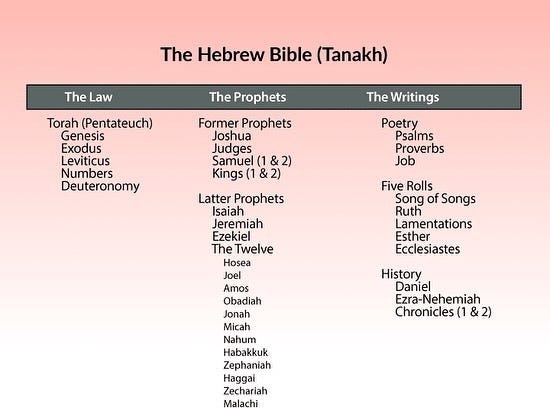Trusting the Bible the Way Jesus Did
A short case for the whole Bible.
One of the most important questions a Christian can answer is: why do I trust the Bible? There are lots of ways to talk about this, but I want to discuss one reason. And it’s actually fairly simple.
I trust the Bible because Jesus trusted the Bible.
It really is that simple. You can get more complex than that, but ultimately everything comes back down to that. To say that, you still have to make some assumptions. You have to assume that the words we have in the four Gospels are actually things that Jesus said. That said, if you allow yourself to be working off of probabilities—which you should—then I think there are good reasons to trust what the Gospels say. Not least of which being that we have more manuscripts of the New Testament than any other ancient document. So if you trust the reliability of the works of Plato, Aristotle, Homer, and more, then you have no reason not to trust the reliability of the New Testament.
So then the question becomes: is the Bible authoritative? And if so, which parts of the Bible are authoritative?
There is a popular idea that the words of Jesus carry more authority than other parts of the Bible, the Old Testament in particular. Not only is this dangerously close to Marcionism, I’d argue that it’s simply not how Jesus himself thought about it.
And that’s the point: as Christians, we don’t approach the Bible the same way non-Christians do. We distinctly seek to read the Bible the way Jesus himself read it. That doesn’t mean we need to use the same translation (or lack thereof) or order of books or anything. But we want to approach scripture with the mentality that he approached it with.
Thankfully, Jesus spoke about the scriptures a lot. And how he spoke about them can help us understand the authority of the New Testament as well.
So let’s look at it by answering a few questions.
1. What Bible was Jesus reading?
It was the Old Testament, but it wasn’t in the same order as ours. You can see him summarize it as “The Law, The Prophets, and the Psalms” at the end of Luke.
He told them, “These are my words that I spoke to you while I was still with you—that everything written about me in the Law of Moses, the Prophets, and the Psalms must be fulfilled.
Luke 24:44
Here’s what that order looks like. “The Psalms” is also shorthand for all the Writings.
Notice what books are classified as what. For instance, Judges is under the Prophets.
Here is an overview of that from BibleProject.
2. What did Jesus think the Bible was about?
Jesus said that the Old Testament pointed specifically to him. He said the exact same thing in the same chapter to the disciples on the road to Emmaus. He believed that the Old Testament was prophetically pointing forward to himself.
Then beginning with Moses and all the Prophets, he interpreted for them the things concerning himself in all the Scriptures.
Luke 24:27
This explains why he said he didn’t come to abolish the Law and the Prophets—you know, the whole Old Testament—but to fulfill it.
Don’t think that I came to abolish the Law or the Prophets. I did not come to abolish but to fulfill. For truly I tell you, until heaven and earth pass away, not the smallest letter or one stroke of a letter will pass away from the law until all things are accomplished.
Matthew 5:17-18
3. Who did Jesus think wrote the Bible?
Jesus attributed both human and divine authorship of the Psalms to David by the Holy Spirit.
So even the Psalms are divine speech that are communicated through the person and personality of David.
David himself says by the Holy Spirit:
The Lord declared to my Lord,
‘Sit at my right hand
until I put your enemies under your feet.’Mark 12:36
Even if you still think Jesus’ words are the only ones that matter, Jesus himself attributes everything he is saying right back to the Father. It’s impossible to separate the words of the Father and the words of the Son. It’s clear that divine revelation is a Trinitarian act that comes from Father, Son, and Holy Spirit.
For I have not spoken on my own, but the Father himself who sent me has given me a command to say everything I have said. I know that his command is eternal life. So the things that I speak, I speak just as the Father has told me.
John 12:49-50
And you see just how much weight Jesus places on Moses’ words. If you don’t believe Moses, why would you believe Jesus? And how could Moses write about Jesus a millennia before he was born except by the Holy Spirit the same way David did?
For if you believed Moses, you would believe me, because he wrote about me. But if you don’t believe what he wrote, how will you believe my words?
John 5:46-47
The problem Jesus had with the Sadducees wasn’t that they cared about the Old Testament scriptures too much; it was that they knew them too little and missed that they all pointed to Jesus, who was fulfilling the whole thing right in front of their eyes. Jesus speaks of the scriptures and the power of God in the same breath.
Jesus answered them, “You are mistaken, because you don’t know the Scriptures or the power of God.
Matthew 22:29
Jesus repeatedly emphasizes the importance, inspiration, and authority of the Old Testament over and over again in his teachings. To trust Jesus is to trust the Old Testament. To find his words authoritative is to find the Old Testament authoritative.
4. What About The New Testament?
Jesus’ emphasis on the Old Testament makes it all the more shocking when you realize that the earliest Christians (and by earliest, I mean Peter, Jesus’ right-hand man) are putting Paul’s writings on par with the Old Testament scriptures. (And agrees that they’re hard to read!)
Also, regard the patience of our Lord as salvation, just as our dear brother Paul has written to you according to the wisdom given to him. 16 He speaks about these things in all his letters. There are some things hard to understand in them. The untaught and unstable will twist them to their own destruction, as they also do with the rest of the Scriptures.
2 Peter 3:15-16
They were accepting Paul’s message as the Word of God, not just a human message.
This is why we constantly thank God, because when you received the word of God that you heard from us, you welcomed it not as a human message, but as it truly is, the word of God, which also works effectively in you who believe.
1 Thessalonians 2:13
Which makes you wonder if Paul’s message is received as authoritative because it’s recognized as such by the apostles, then the apostle’s teachings must also have the same authority as the Old Testament scriptures. Which would make sense for something you devote yourself to.
They devoted themselves to the apostles’ teaching, to the fellowship, to the breaking of bread, and to prayer.
Acts 2:42
Trusting the Bible Like Jesus
All of this means that while Christians don’t affirm a canon within a canon and place the Gospels as somehow more authoritative than the rest of scripture, it does mean that the distinctly Christian way to read the scriptures is from the center—the Gospels—out.
Because we want to read the Bible like Jesus taught us: to read it all as pointing to him.
This means Christians don’t approach scripture with a hermeneutic of skepticism because our trust is in Jesus, so we trust what he told us to trust, which was the whole Bible.
So Christians interpret the Bible with a hermeneutic of trust, taking Jesus at his word that the whole Bible is all God’s word.
So yes, take Jesus’ words seriously. And remember that Jesus took the rest of the Bible seriously. As God’s Word, even. So to trust Jesus is to receive the whole Bible as God’s Word.





